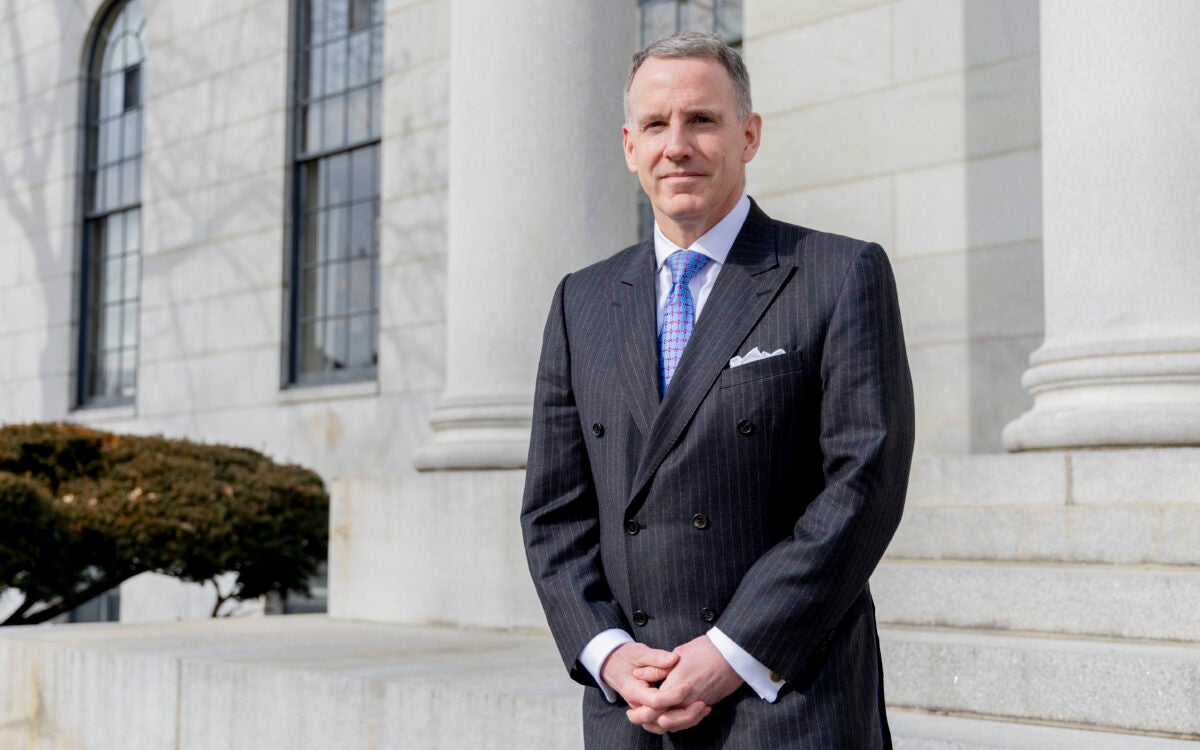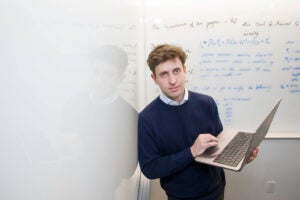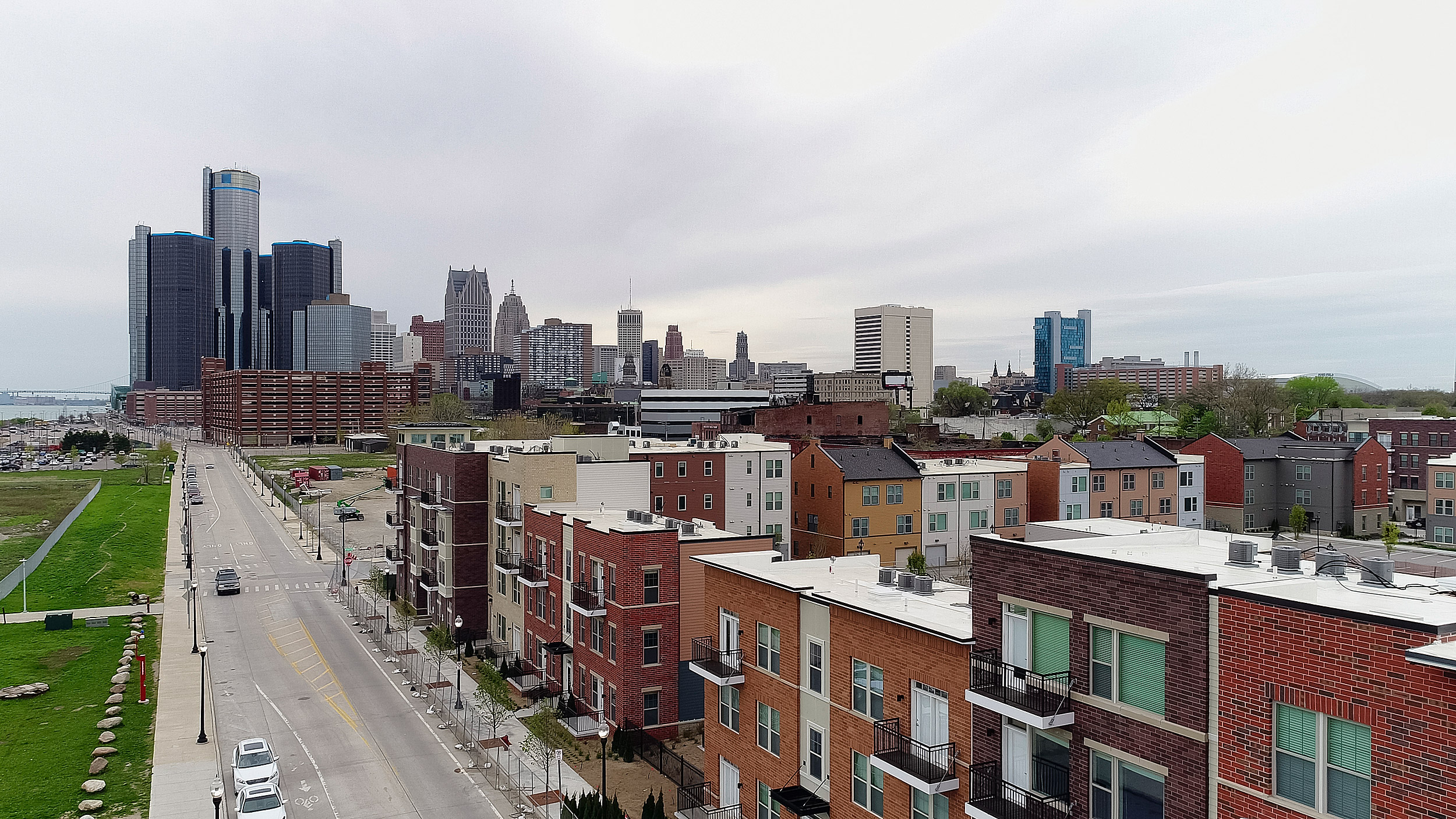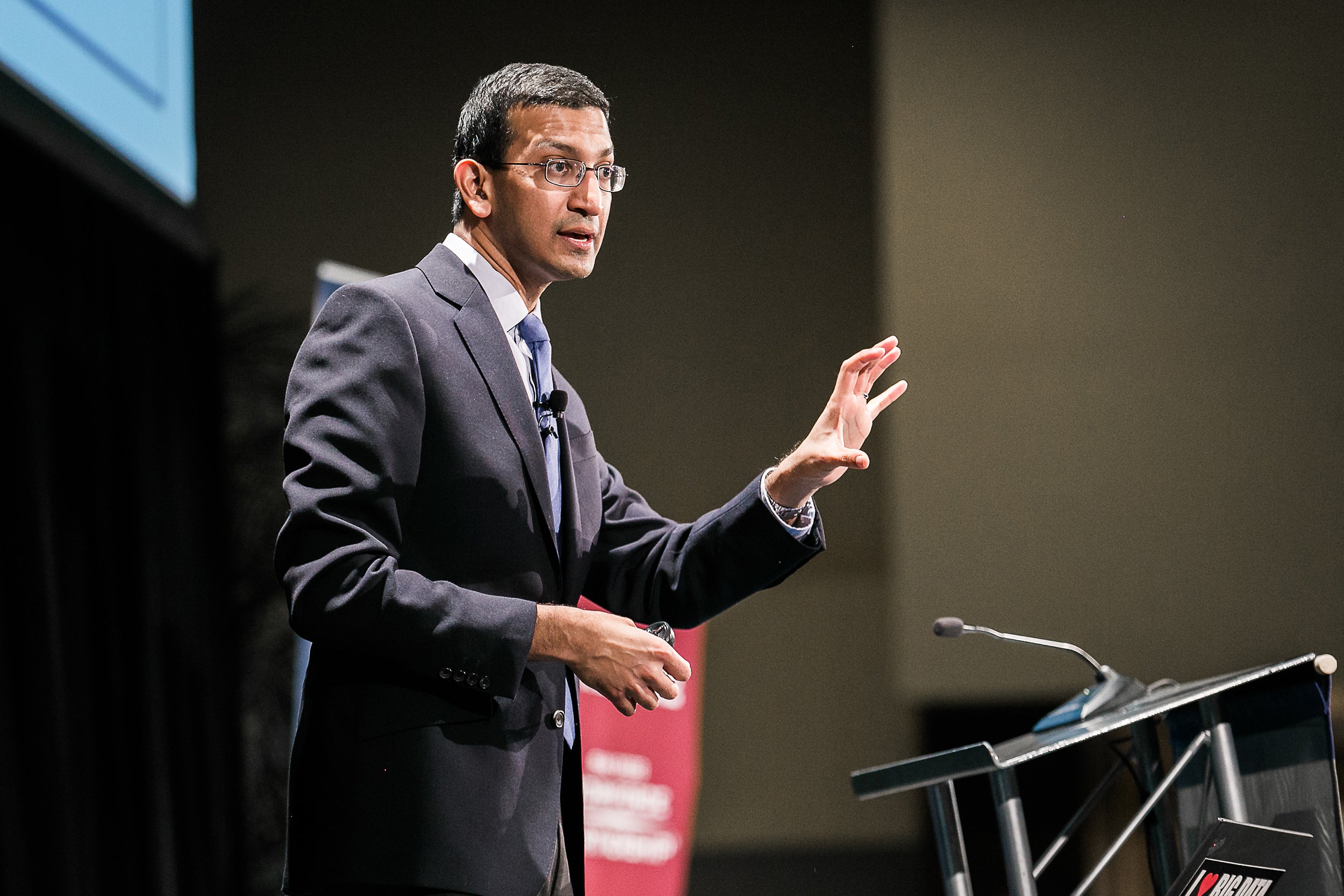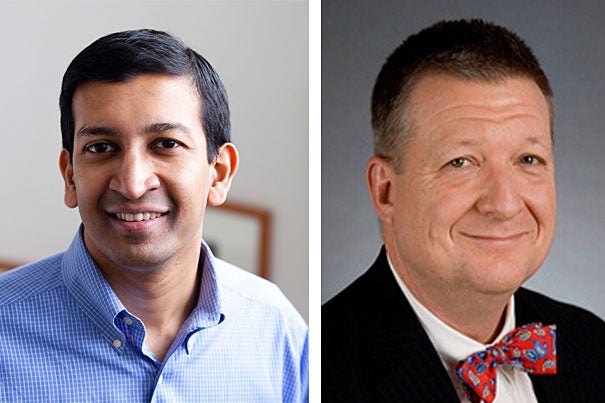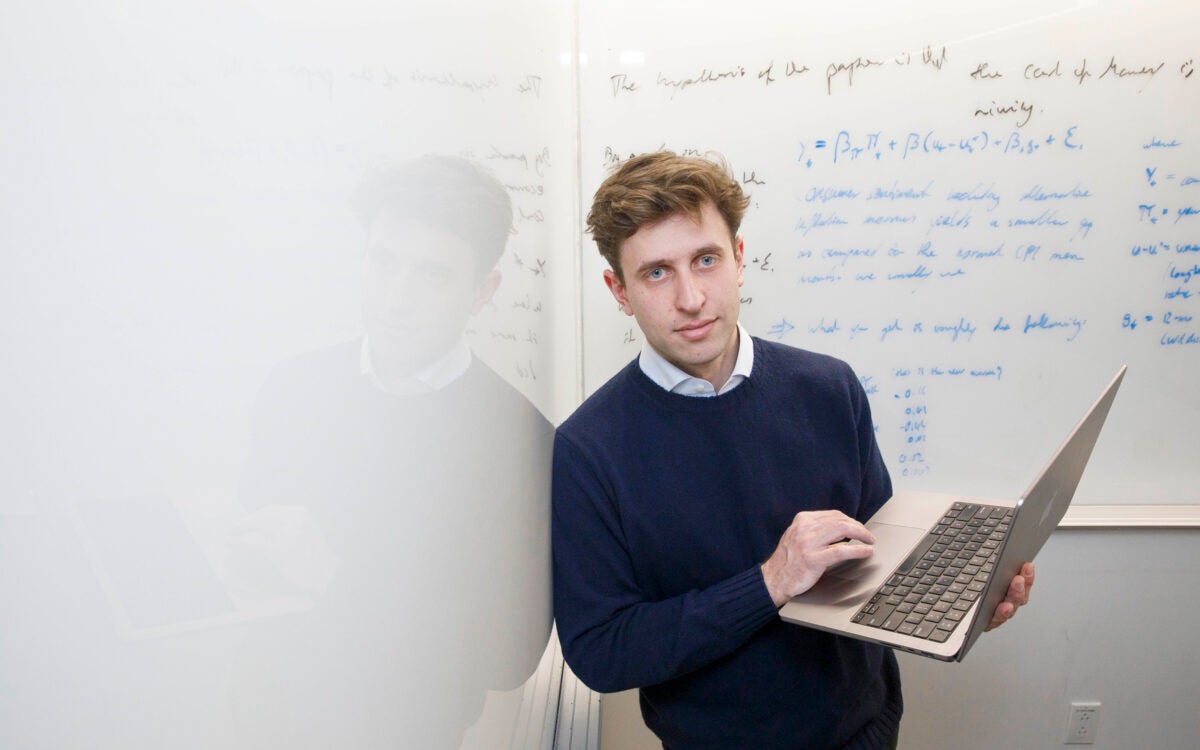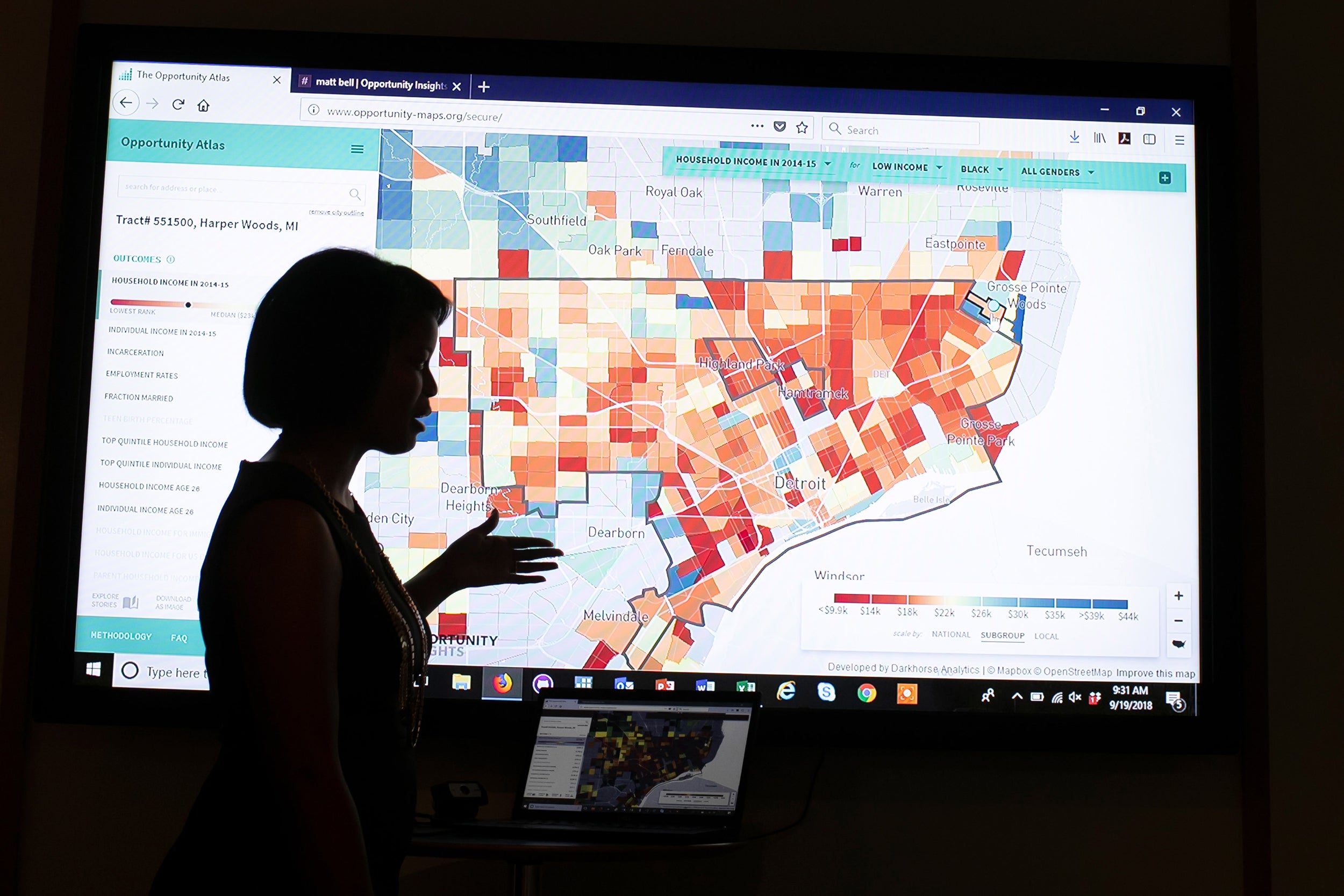
Opportunity Insights, a new research institute headed by Harvard faculty, will explore why upward mobility and economic progress have stalled for so many.
Rose Lincoln/Harvard Staff Photographer
Reviving the American dream, one neighborhood at a time
Raj Chetty, fellow researchers ask: Why stop at research?
Six months ago, David Williams wasn’t anywhere near Harvard. He was in Detroit, working on economic development and land-use issues as a senior aide to Mayor Mike Duggan.
Despite his belief in the effectiveness of the city’s programs, without data and the ability to analyze it, Williams couldn’t be sure that the initiatives were helping residents.
“The question I dealt with was: Are we making these places better?” he said. “How do we know what we’re doing is making people’s lives better? It’s a question we couldn’t answer.”
Then he discovered the work of economists Raj Chetty, Nathaniel Hendren, and John Friedman, research that applies big-data tools to massive economic, geographic, and demographic data sets. The results allow analysts to zero in on variables like race, education, and income to see what’s happening on the ground in neighborhoods across the country.
This gives researchers a view of struggling areas ripe for intervention. It also highlights communities where people succeed despite poverty and other challenges, providing examples to be plumbed for new insights.
“I think the potential of applying this kind of research is incredible,” Williams said.
Today, he is doing just that, as policy director for Opportunity Insights. The new research and policy institute is headed by Chetty, the William A. Ackman Professor of Public Economics at Harvard; Hendren, a Harvard professor; and Friedman, an associate professor at Brown University.
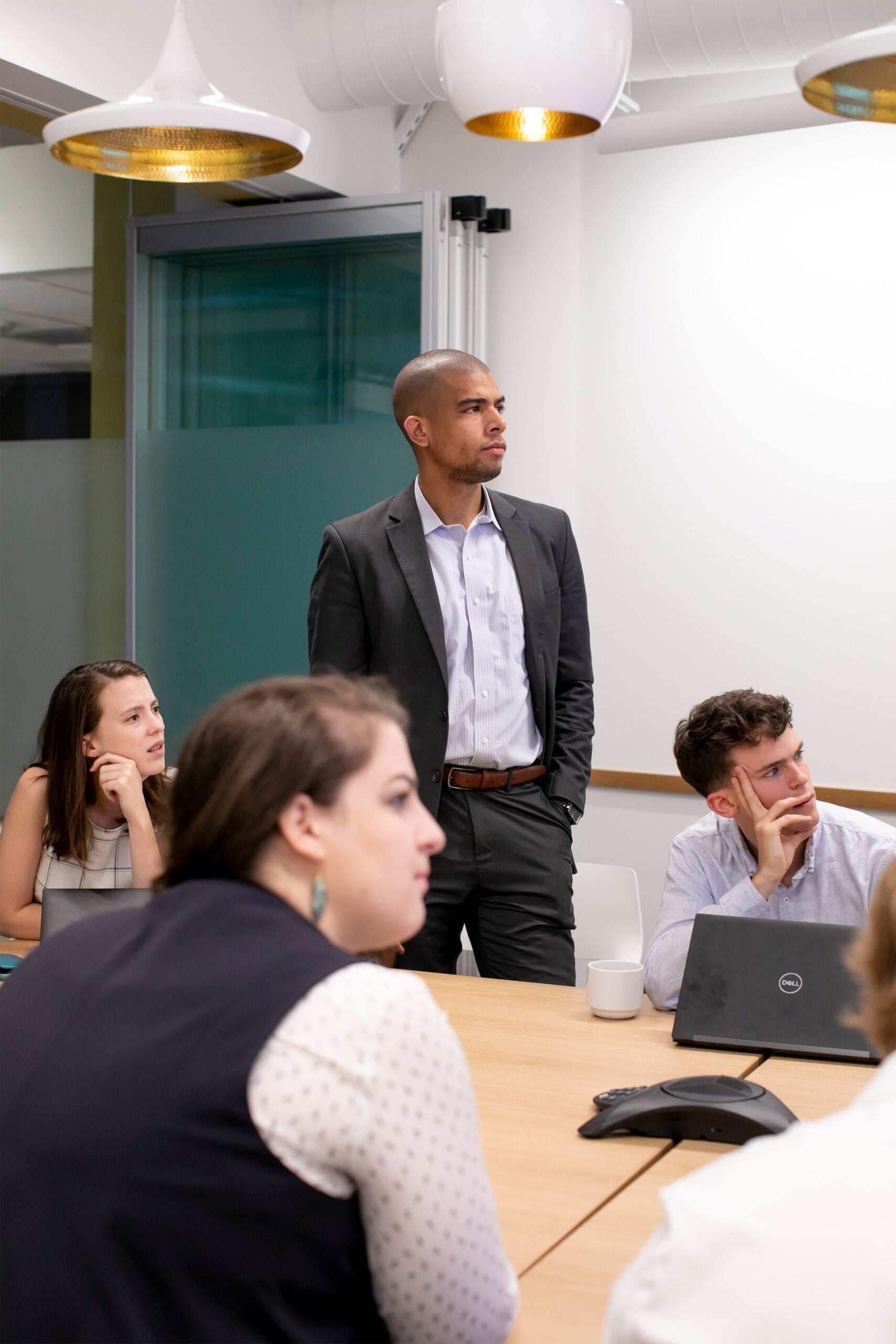
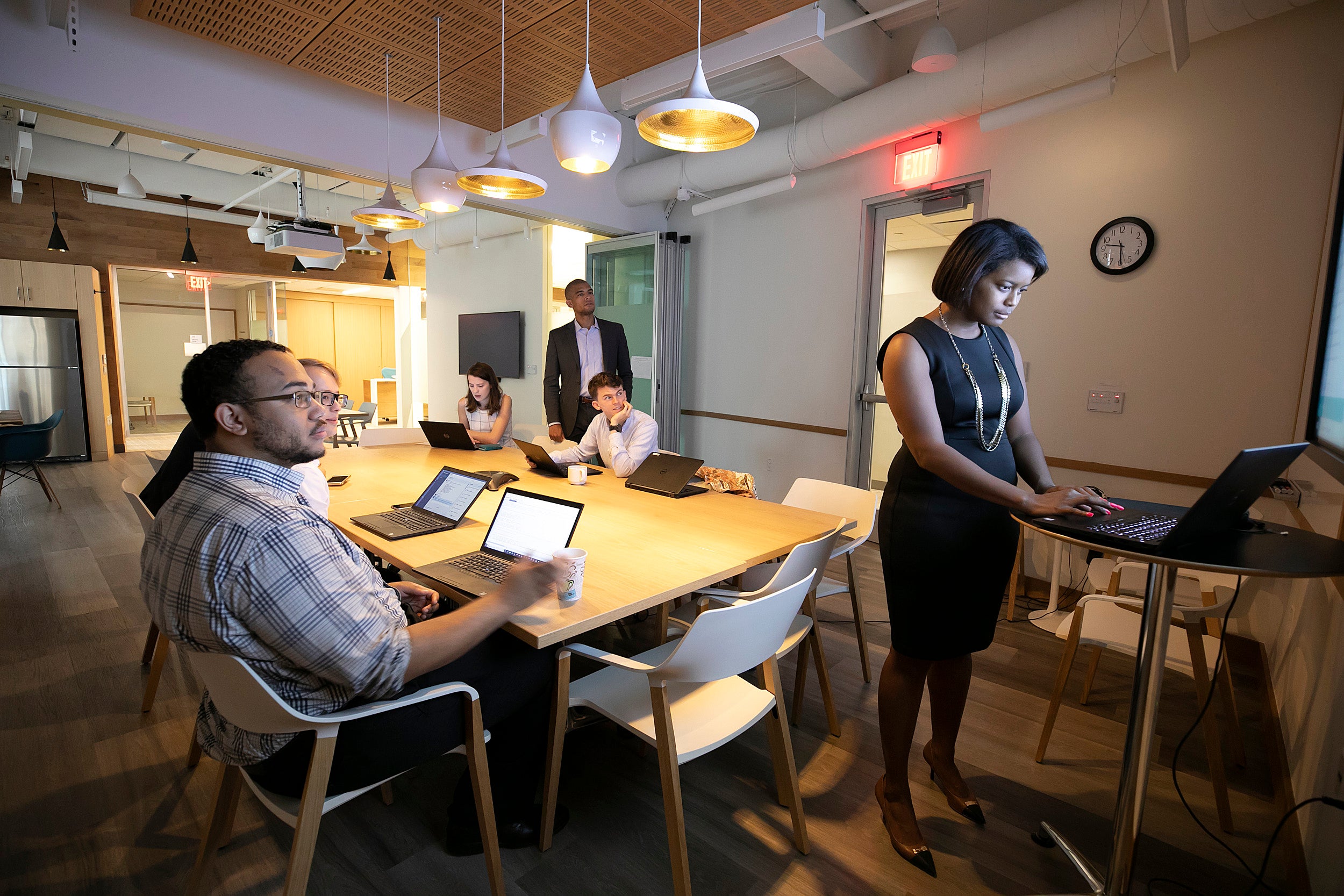
Alanna Williams (image 1, from left), Tina Chelidze, David Williams, and Sebastian Devlin-Foltz listen as Laura Moore (image 2, right) shows areas under discussion on the map.
Rose Lincoln/Harvard Staff Photographer
The institute, run from a Mass. Ave. office across from Harvard Yard, is dedicated to understanding why upward mobility and economic progress have stalled for so many U.S. families. Chetty, who returned to Harvard this summer after three years at Stanford University, said that the policy arm is a major new thrust in his work, enabling the development — with community partners — of evidence-based measures aimed at reviving the American dream.
The idea that researchers should seek to shape policy took some getting used to, Chetty said. The initial suggestion came from communities and nonprofits that read some of the group’s widely publicized findings. The researchers’ first thought, Chetty said, was that they ought to stick to research. But in time they became convinced that they might help develop solutions to some of the problems they were highlighting.
Since then, projects have been piloted in Seattle, Charlotte and, last month, Detroit. Chetty said he expects the policy team to continue growing as new partners are found and projects launched.
“The vision is to really actively go beyond the research itself,” he said.
Opportunity Insights’ founding was made possible through gifts from the Bill and Melinda Gates Foundation and the Chan Zuckerberg Initiative, with additional support from the Overdeck Family Foundation and Bloomberg Philanthropies.
While policy is a new part of the mission, the institute will continue its principals’ prior work: to better understand ordinary Americans’ economic struggles and the roles that neighborhoods, schools, teachers, race, parental education, and other factors play in a child’s chance for success.
The idea that researchers should seek to shape policy took some getting used to, said Harvard Economics professor Raj Chetty. But in time they became convinced that they might help develop solutions to some of the problems they were highlighting.
Rose Lincoln/Harvard Staff Photographer
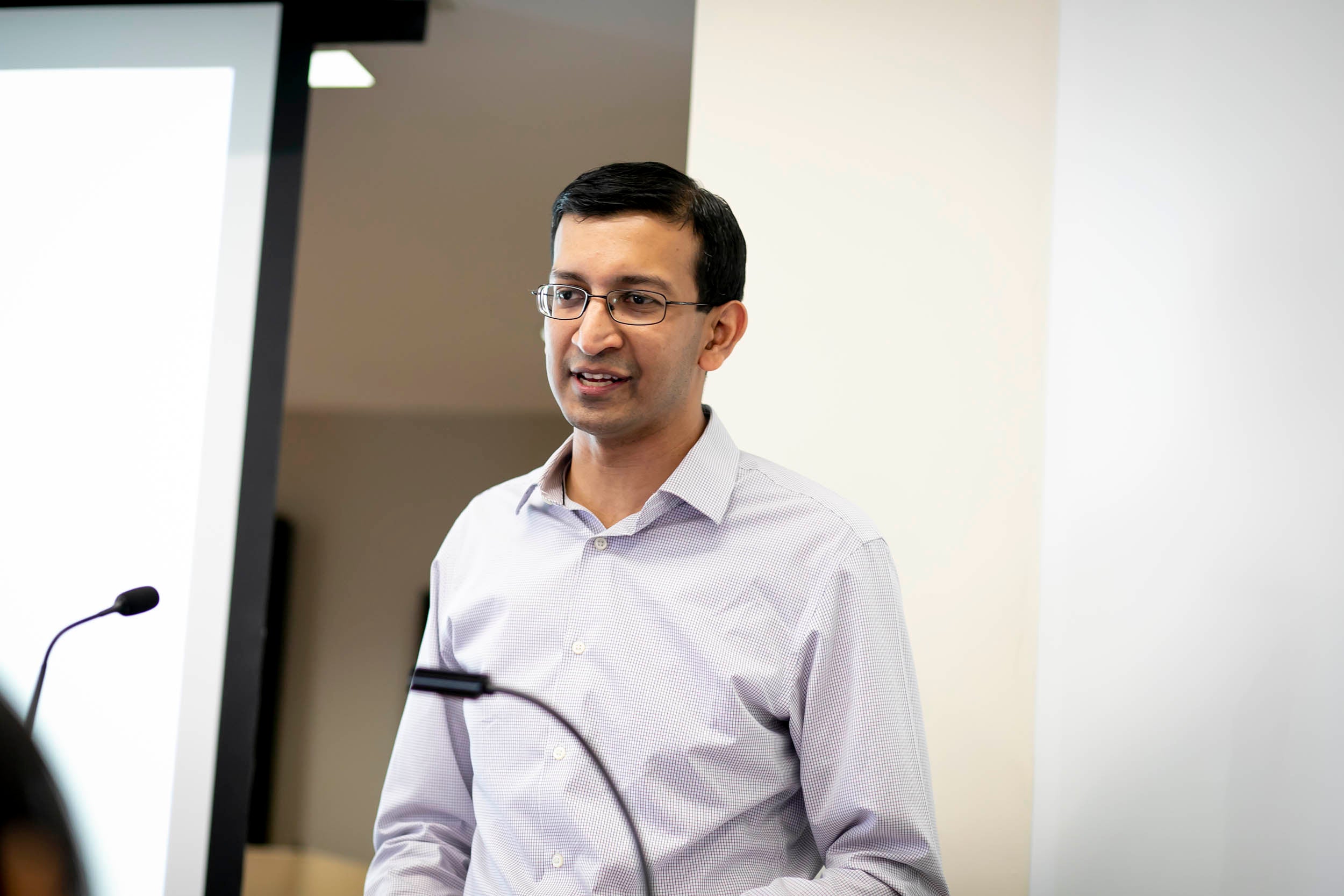
“Harvard is thrilled to be home to Opportunity Insights,” said Harvard President Larry Bacow. “Improving economic and social mobility is essential to the strength of the nation, and we look forward to the critical work that Raj Chetty, Nathaniel Hendren, John Friedman, and their colleagues will undertake to improve our understanding of interventions and policies that work. Effectively addressing poverty cannot be done by any one group or organization, and I am delighted that Harvard is part of a collaborative approach with partners at a national level and in communities around the country.”
Ellen Viruleg, Opportunity Insight’s executive director, has overseen growth to a full-time staff of 27. The group consists of three principal investigators, six policy specialists, visiting faculty members, and 15 predoctoral fellows who will conduct research full time before enrolling in graduate programs.
Joseph Winkelmann is a predoctoral fellow working for the institute’s Washington, D.C., arm.
“There are probably many research teams where I could learn about methodology, but I think it’s pretty exciting research,” he said. “It’s a concept I can get behind and excited about. To me it feels unambiguously good.”
Caroline Dockes, a predoctoral fellow fresh off a master’s program at the London School of Economics, is researching mobility in different regions of the U.S. She said she hopes the experience will help prepare her for doctoral research, but agreed with Winkelmann that the work is interesting in its own right.
The institute this week unveiled its Opportunity Atlas, a free platform that provides social-mobility data for every census tract in America, providing a neighborhood-by-neighborhood view of economic and demographic information.
Tools like Opportunity Atlas, which was created in collaboration with the U.S. Census Bureau and backed by the Robert Wood Johnson Foundation, can help Williams and his team of six policy associates and analysts develop research-informed policies to expand opportunity.
“The work Raj, Nathan, and John are doing allows us to ask and answer questions that matter the most, figure out whether what we’re doing is having an impact … and make policymakers be more efficient in what they want to do,” he said.
